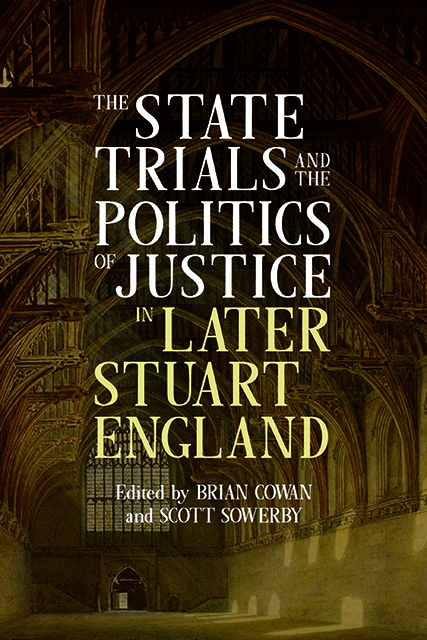7 - Enforcing Uniformity: Public Reactions to the Seven Bishops’ Trial
Published online by Cambridge University Press: 14 January 2023
Summary
The response of the English public to the Seven Bishops’ Trial has often been described as one of overwhelming unity. When the bishops were acquitted on 30 June 1688, according to one observer, the ‘Clergy and Laity as wel[l] Dissent[e]rs as Church of Eng[land] seem[e]d unanimous in their expr[e]ssions of joy’. The acquittal, observed the Dutch ambassador in London, ‘makes the nation considerably more resolute, and bring[s] them to more unity than they were before’. An Anglican gentleman in Derbyshire exulted at the public response to the verdict: ‘To see the h[e]arty union amongst us upon this occasion, and that what our Enimies designed for our ruine, hath had so good an Effect; cannot but with admiration be observed, and acknowledged as the speciall worke of God’. The trial of the bishops, the marquis of Halifax noted, had ‘brought all the Protestants together, and bound them up into a knot, that cannot easily be untied’. The bishop of Carlisle was convinced that the bishops would ‘have no cause to repent of any thing they have done; the whole Nation applauding them for it’.
Historians have echoed these contemporary observers. J. R. Western saw the petition of the seven bishops as ‘a national gesture of resistance’. George Hilton Jones wrote that ‘The people (for once, one can use that word without exaggeration) had been alarmed’ by the trial but were ‘relieved’ by the verdict. Jacqueline Rose suggested that by ordering the Anglican clergy to read the Declaration for Liberty of Conscience aloud from their pulpits, the king had taken a path that had ‘united the country against him’. Steve Pincus contended that ‘The English people were furious with their king in the summer of 1688’. But no historian sounded this motif as ardently as Thomas Babington Macaulay: the bishops had ‘received the applauses and blessings of the whole nation’; the tidings of their acquittal flew to ‘every part of the kingdom, and were everywhere received with rapture’; and their ordeal had generated a union of ‘[a]ll ranks, all parties, all Protestant sects’ in one ‘vast phalanx’ against the government. The English people, in short, were united.
- Type
- Chapter
- Information
- Publisher: Boydell & BrewerPrint publication year: 2021



